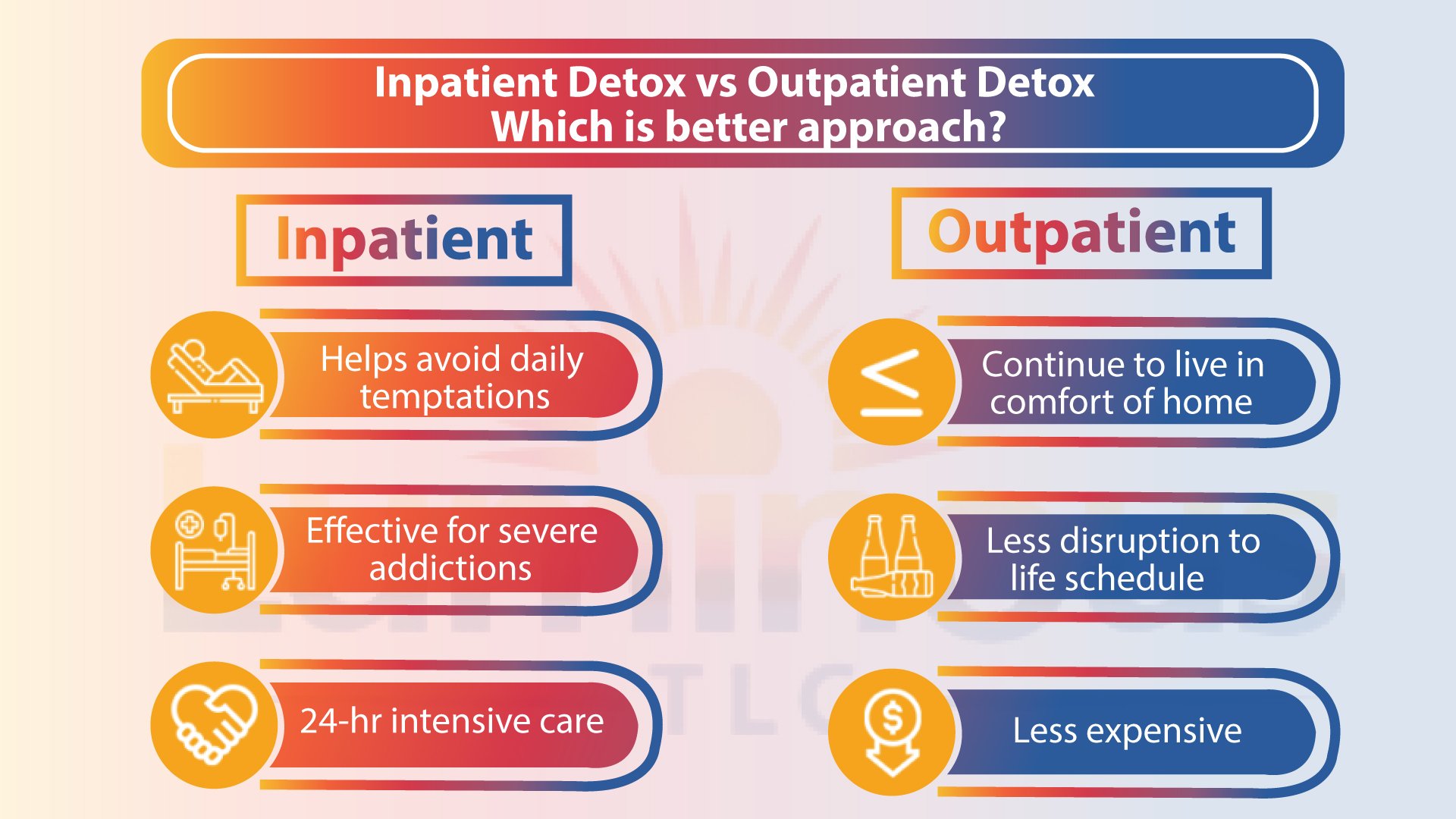
Outpatient detox, Detoxification is the process of ridding the body of toxins like alcohol or drugs. Outpatient and inpatient detox are the two main categories. Each type has its own set of benefits and drawbacks, and the best option for an individual will depend on their specific needs and circumstances. Outpatient detox programs are a good option for people who don’t have a lot of time to dedicate to the process and would rather continue living their life while doing the detox on the side.
The level of support is less intensive, and patients are able to return home after each session. This can be a good option for people who have mild addictions or those who have a stable living situation.
Outpatient detox can be done on an individual or group basis and treatment typically includes counseling and therapy to address underlying issues that may have contributed to the addiction. The level of support is less intensive, and patients are able to return home after each session. This can be a good option for people who have mild addictions or those who have a stable living situation.
Another example of outpatient detox programs is a PHP. A PHP is similar to an IOP, it’s full form is partial hospitalization program and it typically involves more hours of treatment per week. Patients typically attend treatment for several hours a day, several days a week. This type of program can be beneficial for individuals who need more support and structure than an IOP can provide, but who are not quite ready for inpatient treatment.
On the other hand, the benefit of inpatient detox is that it enables people to disengage from their regular obligations and any stressors that may have fueled their addiction. This can be incredibly beneficial for those who have been struggling with addiction for a long time and need a break from their daily lives in order to focus on their recovery.
Additionally, inpatient detox programs offer a wide range of treatment options, such as individual therapy, group therapy, and family therapy, which can help individuals address the underlying issues that may have contributed to their addiction.
They may also include specific therapies such as Cognitive Behavioral Therapy (CBT), which assists people in identifying and changing negative thought and behaviour patterns that may be contributing to their addiction.
It is an excellent option for people who require more supervision and support during the detox process.
These programs typically last for 60 to 90 days and are designed for individuals with severe addictions who need a longer period of time to focus on their recovery. These programs are typically more intensive than short-term programs and may include a wider range of treatment options, such as specialized therapy sessions and holistic therapies.
Although both outpatient and inpatient detox have benefits and drawbacks, the best option for a specific person will depend on their specific needs and circumstances. It is important for individuals to work closely with their treatment team to determine the best course of treatment for their specific needs and circumstances.
The Luminous Care offers comprehensive care for a wide range of substance use disorders that offers a comfortable environment. Our team is compassionate and ready to guide you or your loved ones towards the journey of recovery.
To know more about us, get in touch with The Luminous Care